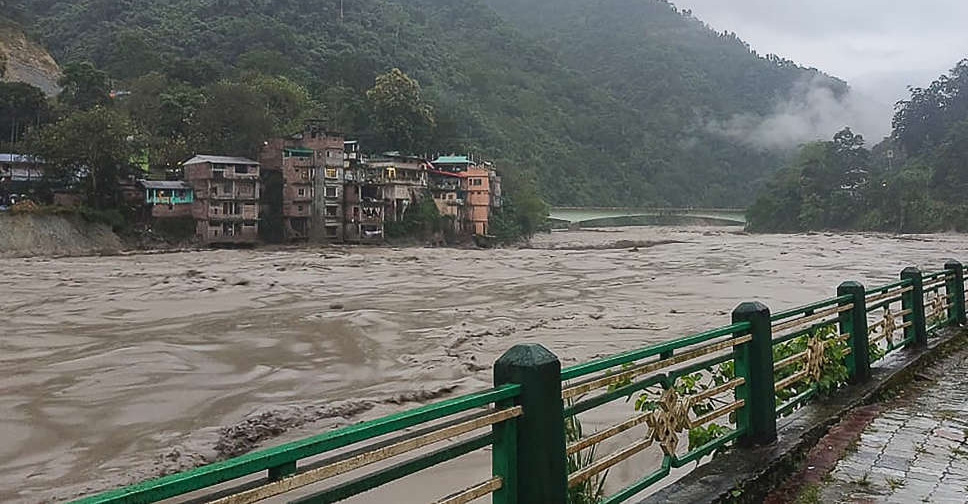
India aims to install the first part of an early warning system at some high-risk glacial lakes in the Himalayas next year, a senior official said on Monday, as the country responds to deadly floods this month that killed at least 60 people.
There are 56 at-risk glacial lakes in India and the urgency to monitor them was stepped up after Lhonak Lake in the eastern Himalayas burst its banks two weeks ago and caused widespread damage in Sikkim, a small mountainous state wedged between China, Nepal and Bhutan.
Reuters was first to report that India was working on a pilot project with Swiss experts to set up the country's first early warning systems at Lhonak Lake, and also at nearby Shako Cho lake. If the systems had been installed, they could have given 90 minutes warning before floods engulfed homes and structures.
"We will try some monitoring systems at lakes that are at risk," Krishna S. Vatsa, a member of India's National Disaster Management Authority (NDMA), told Reuters. The NDMA is coordinating with Indian and international institutes for the project.
State governments will provide recommendations on which of the 56 at-risk glacial lakes in India need to be prioritised for setting up the monitoring systems, Vatsa said.
Vatsa said authorities will aim to set up some of these systems by next year to monitor the weather and environment at the lakes as a first component of an early warning system. The full system would be installed later based on the outcome of monitoring.
He added though that this was "easier said than done" given the difficulty in reaching these lakes high in the mountains, which can be accessed only during summer months. Also, these will be unmanned systems running on solar or battery power.
As climate change warms high mountain regions, many communities are facing dangerous glacial lake outburst floods (GLOFs). Lakes holding water from melted glaciers can overfill and burst, sending torrents rushing down mountain valleys.
More than 200 such lakes now pose a high hazard to Himalayan communities in India, Pakistan, China, Nepal and Bhutan, according to 2022 research, and India currently lags behind its South Asian neighbours in deploying glacial flood early warning systems.
The Economic Times newspaper reported on Monday that top officials from multiple ministries will meet on Wednesday to formulate a plan for early warning systems.

 UK inquiry finds 'chilling' cover-up of infected blood scandal
UK inquiry finds 'chilling' cover-up of infected blood scandal
 Iranian President Raisi killed in helicopter accident, state media says
Iranian President Raisi killed in helicopter accident, state media says
 ICC prosecutor seeks arrest warrants for Israeli, Hamas leaders
ICC prosecutor seeks arrest warrants for Israeli, Hamas leaders
 Assange given permission to appeal against US extradition
Assange given permission to appeal against US extradition
 Israel intends to broaden Rafah sweep, Defence Minister tells US
Israel intends to broaden Rafah sweep, Defence Minister tells US




